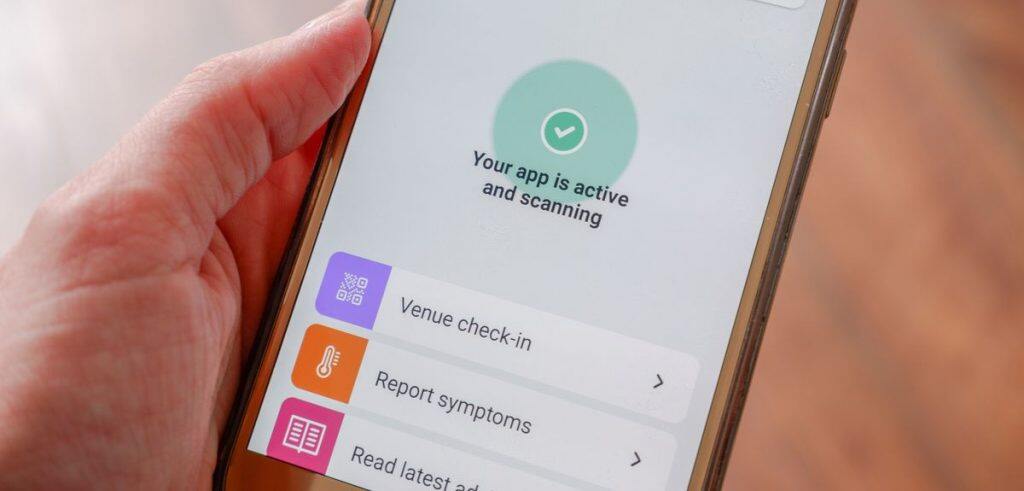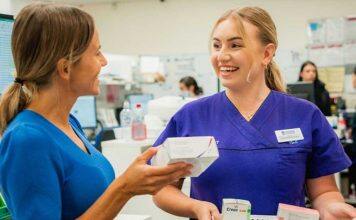A team of medical research and statistical modelling experts at Oxford University and the Alan Turing Institute have conducted a joint analysis to assess the impact of the NHS COVID-19 contact tracing app.


The research suggests the app stopped between 200,000 and 900,000 infections between 1st October and 31st December 2020, when 1.9 million people were infected with coronavirus in England and Wales.
Christophe Fraser, Professor of Pathogen Dynamics at Oxford University’s Big Data Institute, Nuffield Department of Medicine, explains: ‘We used two separate approaches to analyse the impact of the more than 1.5 million notifications sent by the app in 2020, and both showed that between 200,000 and 900,000 infections have been averted. The impact of the app could be increased if more people use it. For each 1% increase in users we estimate the number of cases will drop by between 0.8% and 2.3%.’
The report shows the app was downloaded onto over 21 million phones, out of 33.7 million eligible people with compatible smartphones living in England and Wales. In 2020, the app sent out an average of 4.4 quarantine notifications for each user who shared their positive test result though the app. Most alerts went out in the second half of December when cases were rising rapidly across the UK due to the new B117 variant.
Professor Christophe Fraser adds, ‘Our work confirms the NHS COVID-19 app is sending exposure notifications to relevant contacts. Isolating when receiving a notification from the app contributes to preventing the spread of the virus.’
David Bonsall, Principal Investigator at the Wellcome Centre for Human Genetics, Oxford’s Nuffield Department of Medicine and clinician at Oxford’s John Radcliffe Hospital, says: ‘Our analyses show that when you compare two areas with similar demographics and ongoing interventions, the one with higher app uptake has significantly fewer COVID-19 cases. The data also suggests that if all areas had reached a usage similar to the areas with the highest uptake, we would have had 200,000 to 400,000 fewer cases on top of those averted already. The NHS COVID-19 contact tracing app is a powerful and sustainable public health tool. It can continue to help reduce the number of infections, especially if further resources are invested to increase usage.’
In early November, research performed by Mark Briers and team at the Alan Turing Institute led to a major app update which significantly improved the way the app identifies high-risk contacts. The update also led to an increase in the number of notifications sent out per positive case. Before the upgrade, a 1% increase in app usage was estimated to reduce cases between 0.3 and 1.1%, whereas after the upgrade, this increased to 0.9 to 2.7%. Overall, for each 1% increase in app usage, new cases were reduced by 0.8 to 2.3%.
Dr Luca Ferretti, researcher at Oxford University’s Big Data Institute, Nuffield Department of Medicine, highlights the need for international cooperation: ‘We estimate that the upgrade to the risk scoring developed by our colleagues at the Turing Institute has at least doubled the proportion of COVID-19 cases averted through the app. Our research shows that improving the app significantly increases the number of infections it can prevent. It is essential that countries share these improvements between national apps. The contact tracing apps need to remain tuneable so they adjust to using the best available technology to combat the evolving epidemic.’
Professor Fraser concludes: ‘The public health message is clear: please use the app, it works. Close to half of the eligible population with compatible smartphones is already using the NHS COVID-19 app, but we should keep encouraging higher uptake. The epidemiological outlook remains concerning, and using the app can contribute to reducing infections until we are all vaccinated.’
Find out more on the Fraser Group Coronavirus blog.







































